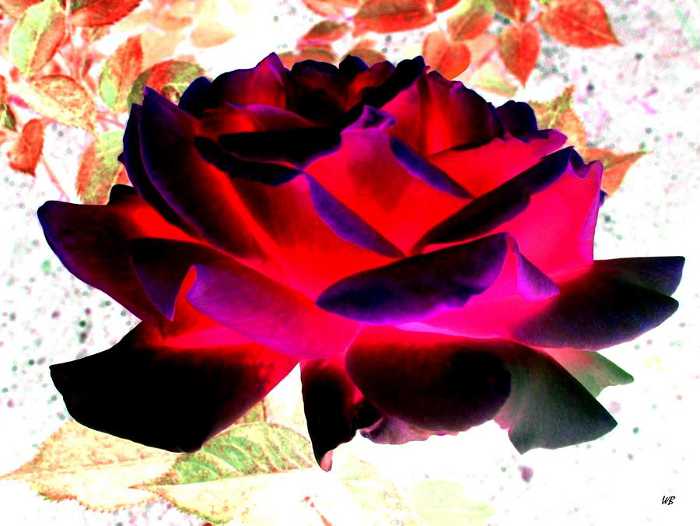FWP:
SETS
GAZE: {10,12}
JALVAH: {7,4}
The first line really piles it on-- her grandeur, her jealous radiance of beauty, all unified, as Josh points out, by a kī that's as far as possible from its noun. (Josh considers this a flaw, but such retrospective judgments aren't usually of any great poetic relevance.) It's easy to imagine that such commanding beauty might not brook any competition. This exclusiveness might be due to the beloved's overpowering grandeur and radiance in itself (as Bekhud Mohani says); or it might be an effect of her demanding arrogance-- she requires the lover not to enjoy anything else, even the color of a flower (as Bekhud Dihlavi maintains). The prominent inclusion of ġhayyūr (see the definition above) among the attributes of the beloved's beauty seems to go in Bekhud Dihlavi's direction.
The wordplay of redness-- blood, 'color', rose-- is at the heart of the verse. All the commentators I've looked at consider kisī
kī nigāh meñ ḳhūñ honā to mean nothing more than 'to be displeasing
to someone'. I wish there were a richer, more 'colorful' (so to speak) idiomatic meaning
as well. But the verse invites us to expand the meaning in our minds. After all, the lover's own eyes are constantly swimming with tears of blood, so he may see the 'color' of the rose through this literal redness as well.

Nazm:
That is, because of your pride you don't know what kind of coquetry would please the lover. For this reason, the color of the rose is blood in my sight; that is, it doesn't please me. (81)
== Nazm page 81